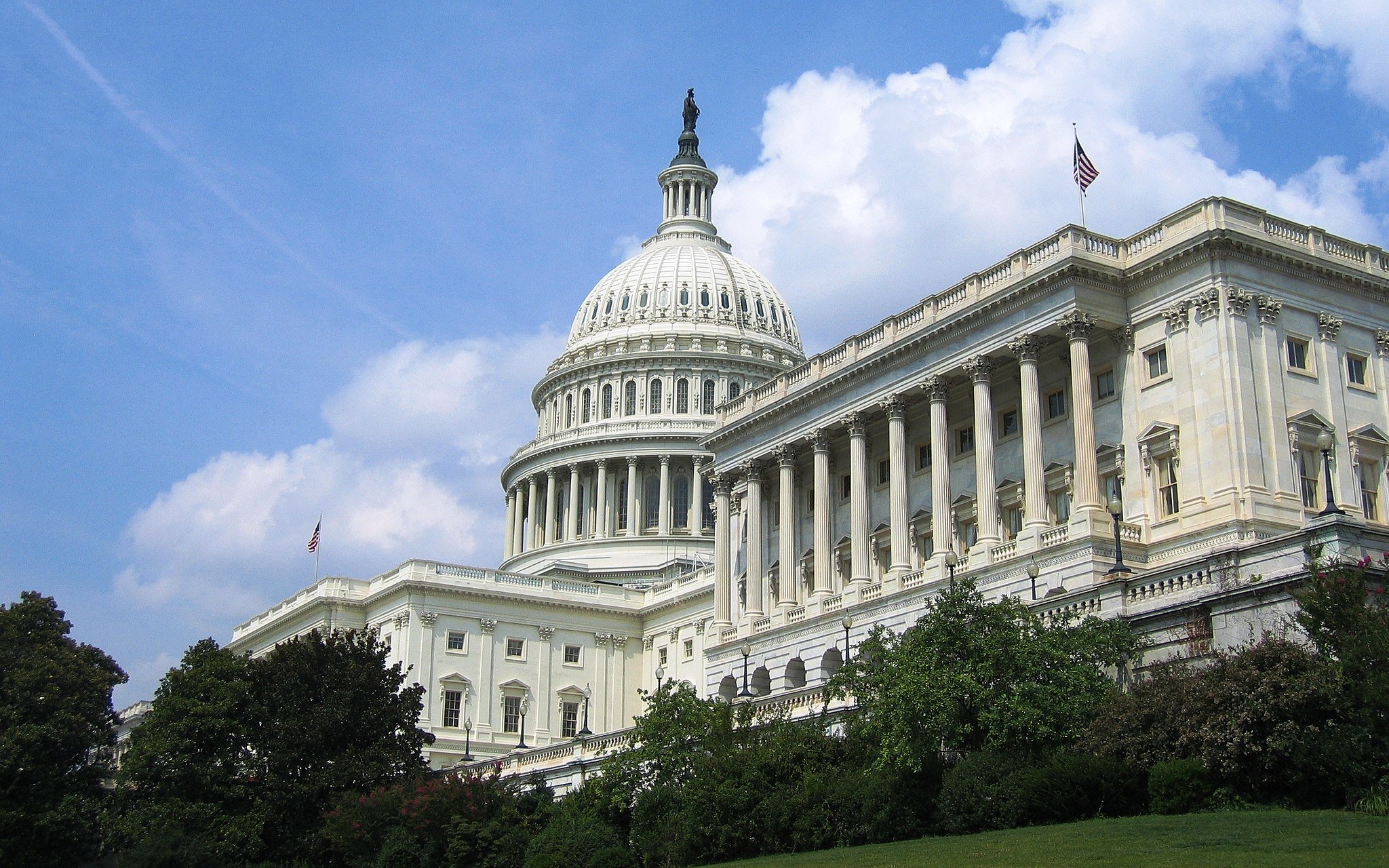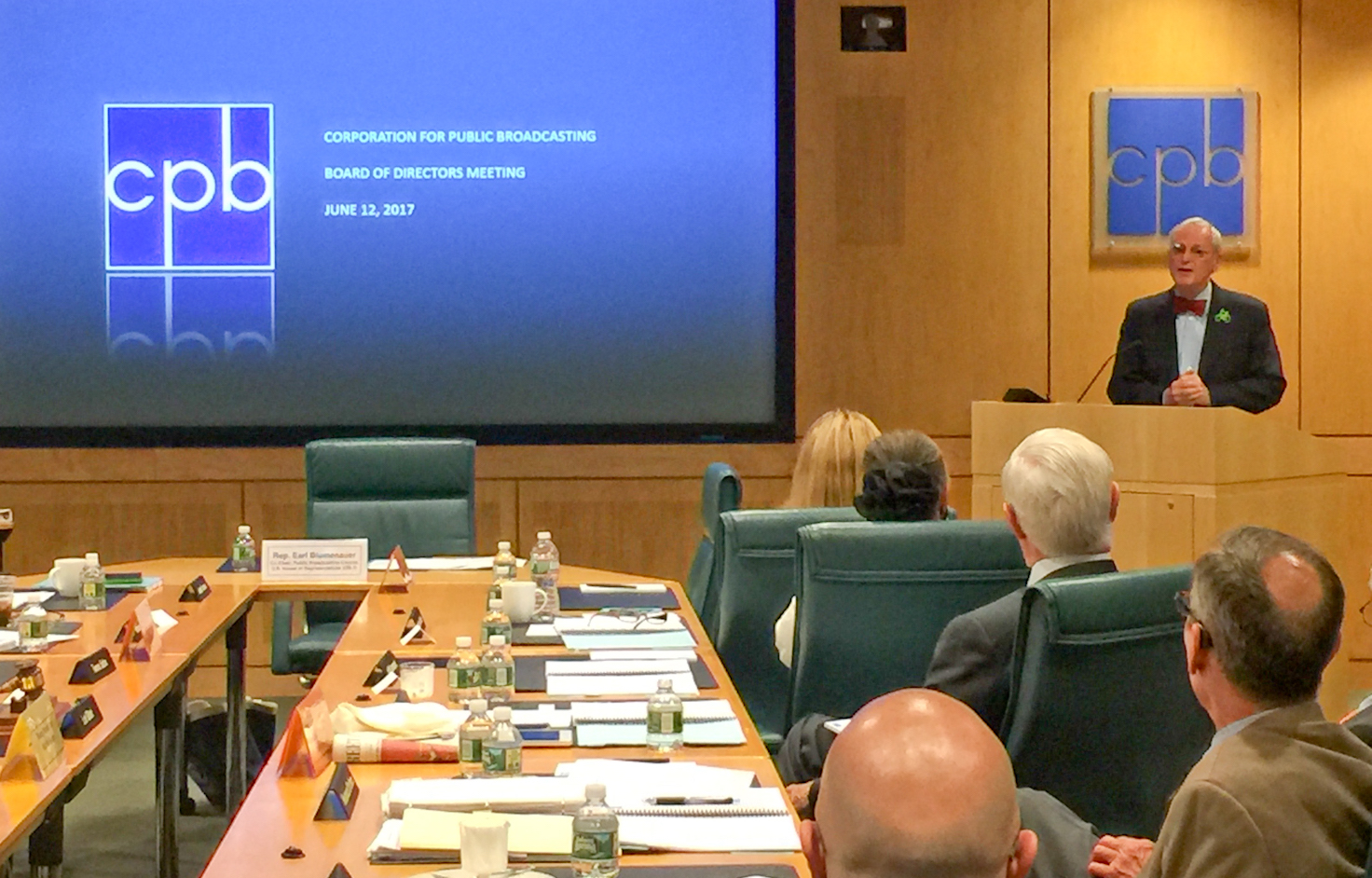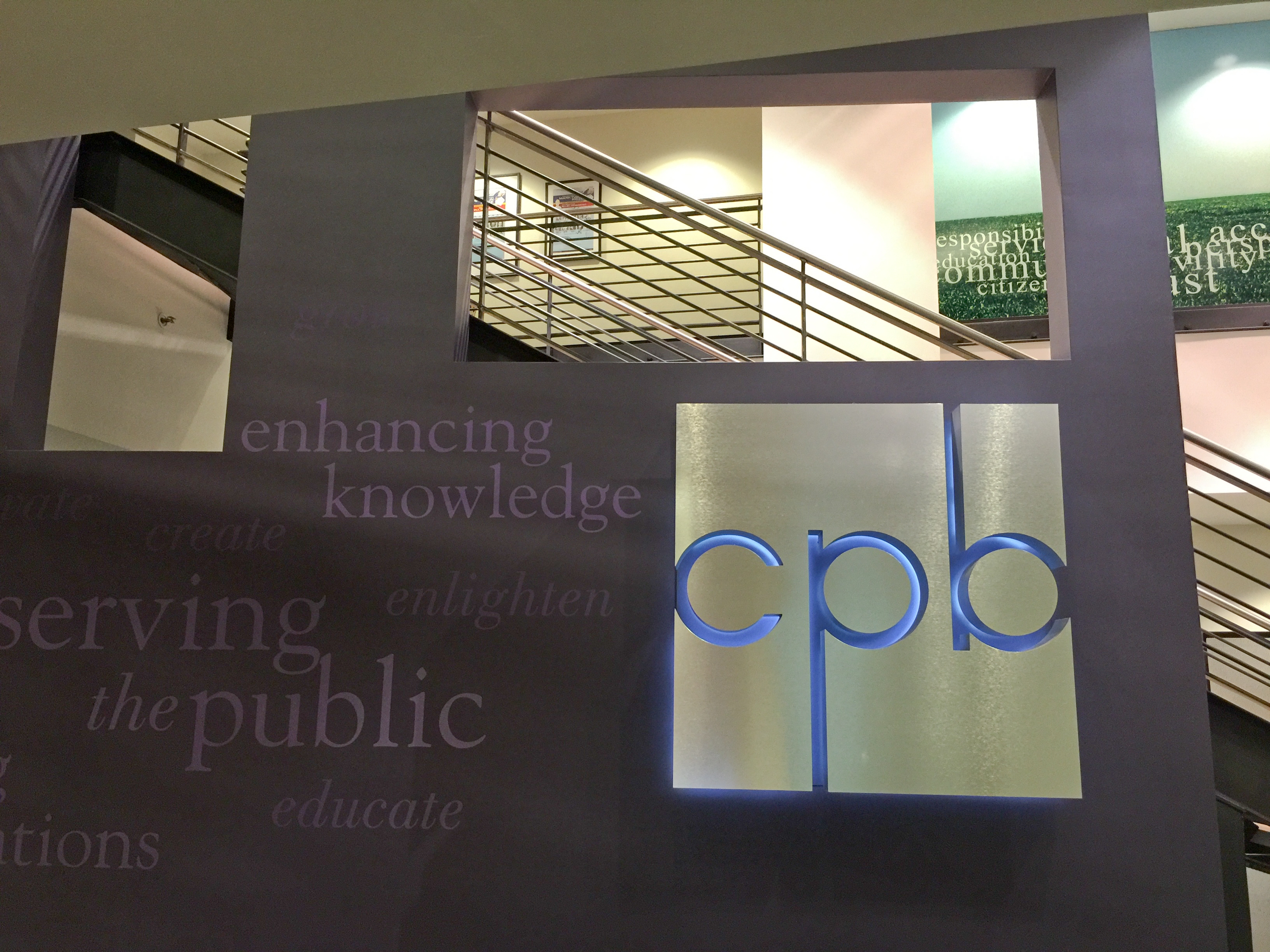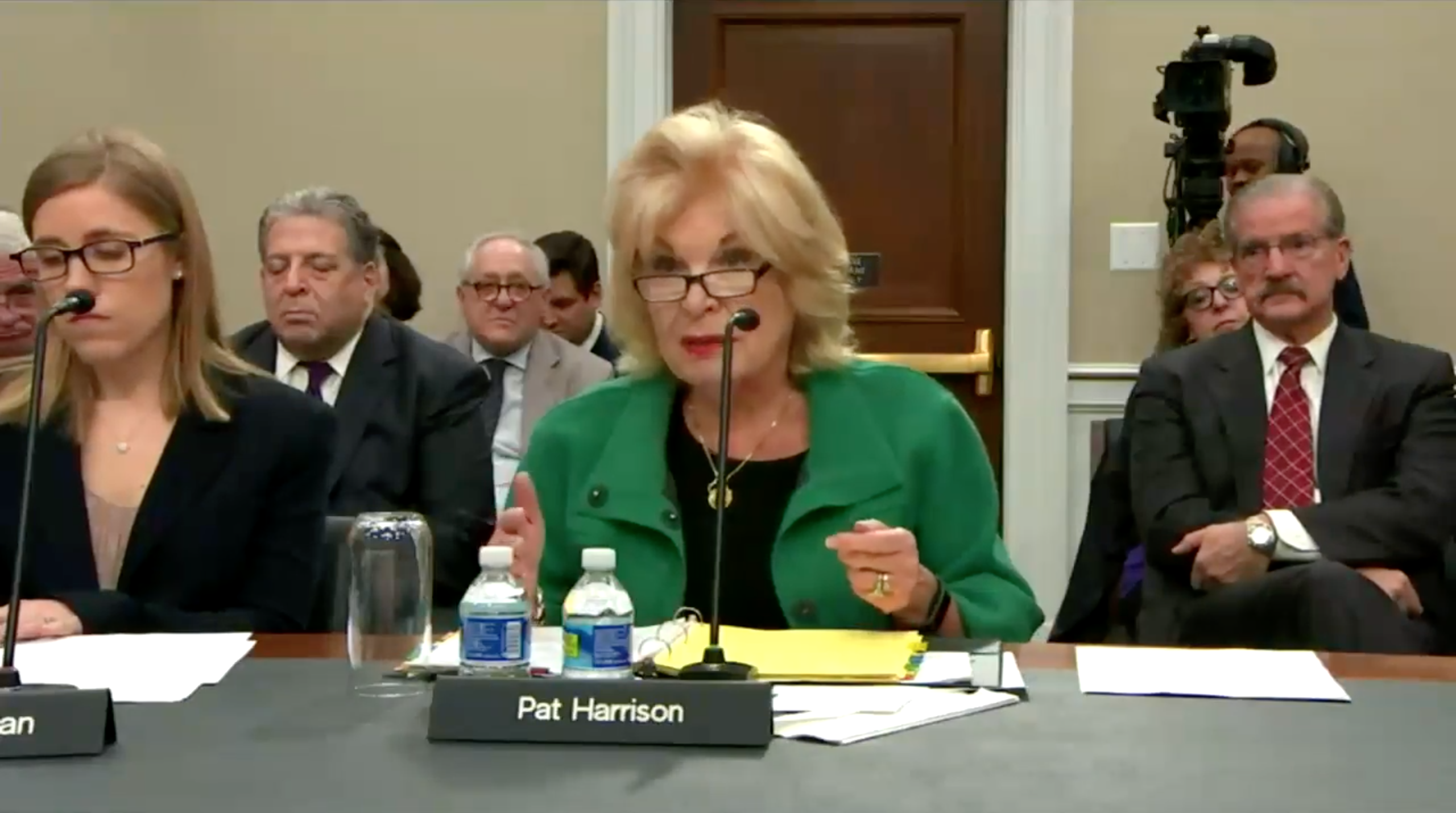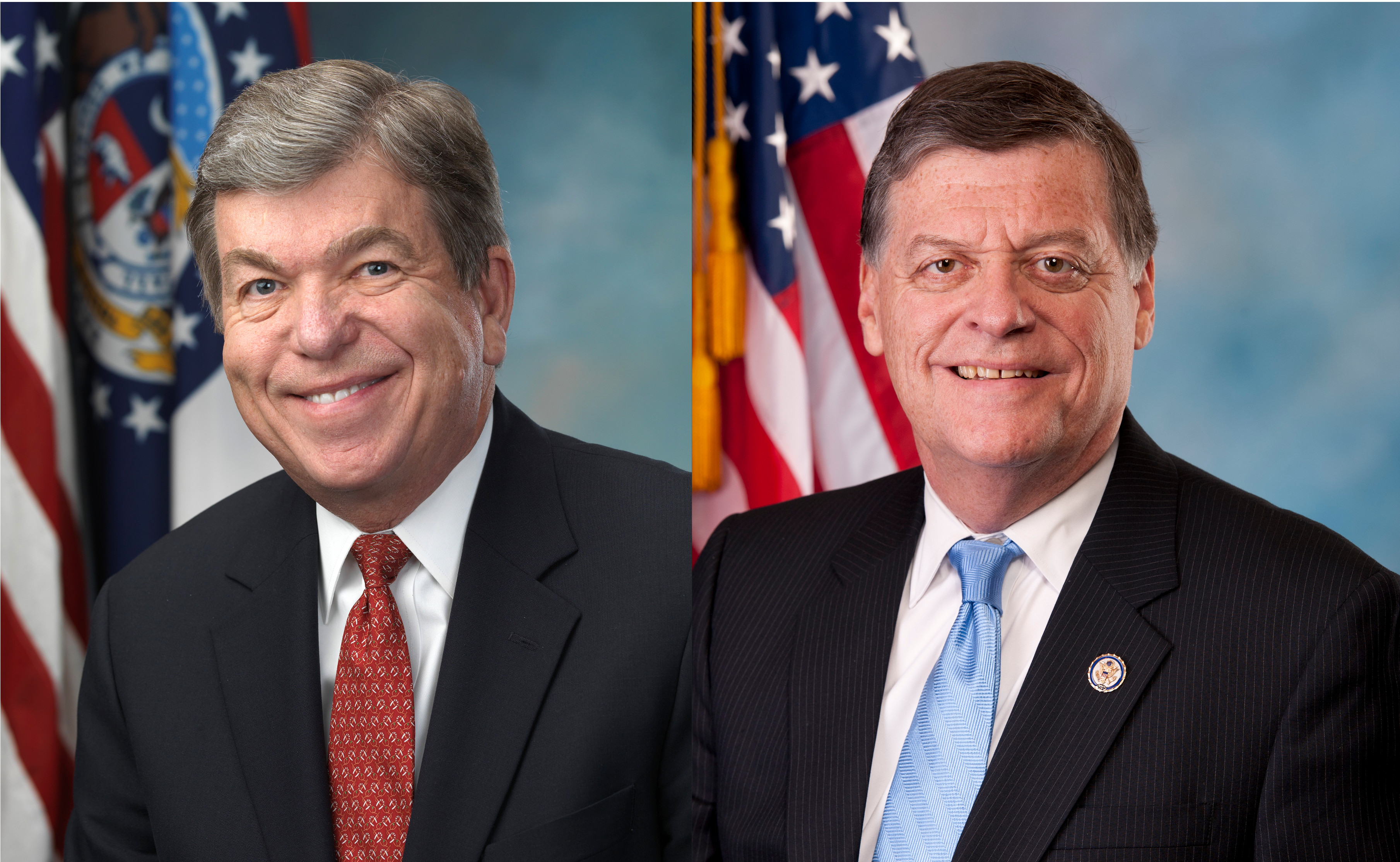Tag: CPB
House Appropriations Committee recommends $445M for CPB in 2020
The bill does not include funding for public broadcasting’s interconnection project or public TV’s Ready To Learn.CPB grant seeks to foster diversity in public radio newsrooms
The four stations collaborating on the project will each hire a new reporter.At CPB Board meeting, congressman calls for ‘civil and thoughtful’ advocacy for pubcasting funding
Rep. Earl Blumenauer also told the board that he had asked House Democrats to stop “using the assault on public broadcasting as ...CPB director’s second op-ed against federal funds draws public rebuke from board leaders
Howard Husock’s latest essay appeared Thursday in “The Hill.”CPB director Husock takes more specific swipe at pubcasting funding
“I’ve continued to think about what a post-subsidy system would be like, as a practical matter,” Howard Husock told Current.Latest version of Trump budget reportedly maintains push to end CPB funding
“There is a little money in the budget left to allow us to wind down the federal position,” said OMB director Mick ...End of CPB funding would affect stations of all sizes
Service cuts and adjusting budgets can only go so far, says Station Resource Group co-CEO Tom Thomas.Maryland congressman aims to defund NPR, ITVS
"We could put an end to funding permanently through statute,” says Rep. Andy Harris (R-Md.). “And it’s probably time to do that.”Survey finds strong opposition to cuts in arts, pubmedia funding
The research also found that 37 percent “strongly disagree” with President Trump’s desire to stop funding entities including CPB.One executive to leave CPB while two get new duties
“We need strong leadership to ensure we are as effective as possible,” CPB President Pat Harrison said.Survey of station equipment finds public TV lacks capital for upgrades
Costs of equipment replacement are projected to reach $256 million by 2019, as aging transmitters reach their end of life.CPB Board hears forecast of financial strain in auction repack phase
The FCC will initially cover 90 percent of station expenses, but some stations may have to carry forward a portion of costs.CPB board members excoriate colleague for publicly backing defunding
Board members called Howard Husock an “embarrassment.”Watch CPB’s CEO testify before Congress
Pat Harrison visited the Hill to explain why public media deserves federal support.How key committee members in Congress have voted on pubmedia funding
Past votes may indicate how legislators weighing in on CPB’s appropriation will address the White House’s proposed end to federal funding.


